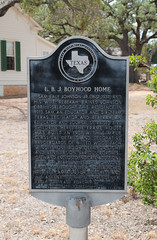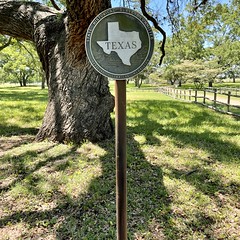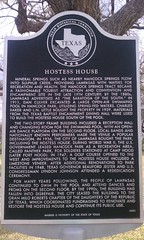
courthouselover on Flickr
All Rights Reserved
Rains County Courthouse. The community of Emory was once called Springville, part of Wood County. In 1870, the Texas Legislature created Rains County from portions of four other counties. Named for early Texas patriot Emory Rains, the county chose Springville as its center of government, renaming it Emory and choosing an existing public square for the site of the county courthouse. The first courthouse, a temporary log structure, served the county for nearly two years, when a two-room building was constructed. It and all the records housed within it burned in 1879, and the county returned to the log structure until a two-story, red brick courthouse was completed in 1884. It was gutted by fire in 1908, but the steel vault containing county records survived the fire. The Bryan Architectural Company of St. Louis, Missouri was selected to design a new courthouse, built around the steel vault still in its original location. Crushed brick from the 1884 building was used in the foundation. The Falls City Construction Company of Louisville, Kentucky served as builder, and the new facility opened in 1909. The courthouse exhibits a unique cruciform plan with projecting wings. The exterior is of ginger brick, produced at the Fraser Brick Co. in Ginger (3 mi. East); both the town and brick were named for the distinctive clay color. Designed in the Classical Revival style, the structure features pilasters and pediment-capped entries, as well as a central dome, reportedly not part of the original design. The courthouse square has long served as a social gathering place. Notable speakers on the square have included U.S. Speaker of the House Sam Rayburn and former president Lyndon Johnson. The site of community fairs, festivals, celebrations and parades, the square continues to be a focal point for Emory and Rains County. Recorded Texas Historic Landmark - 2002 #13149
by Texas Historical Commission #13149 of the Texas Historical Marker series
Colour: black
Wikimedia:
Flickr:
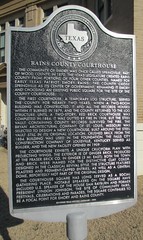
courthouselover on Flickr
All Rights Reserved
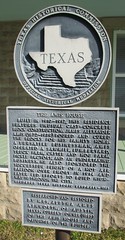
courthouselover on Flickr
All Rights Reserved




.jpg?width=250)
